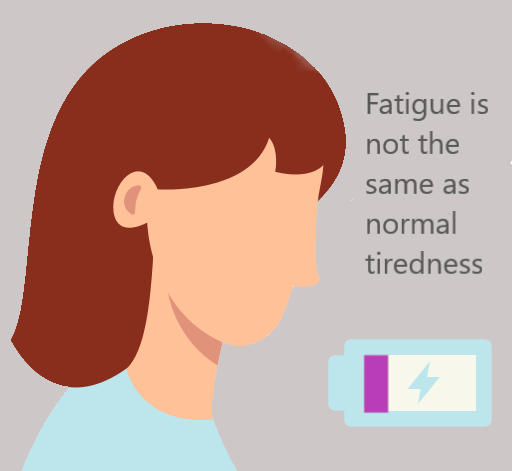Myalgic Encephalomyelitis/Chronic Fatigue Syndrome is a complex, multi-sytem, chronic medical condition characterised by persistent fatigue that can significantly affect everyday life and doesn’t go away with sleep or rest. Unlike everyday tiredness it can be triggered by minimal physical, cognitive or emotional activity. ME/CFS is recognised as a relatively common illness (NICE, 2021) and classed as a neurological illness by the World Health Organisation (WHO, 2010). Current research indicates dysregulation of several different body systems. Sadly it can be common for patients to struggle to obtain recognition and understanding for the way that they feel, not only from health professionals, but also from family and friends.
Common belief suggests a UK population prevalence of 250,000 with ME/CFS, and around 17 million people worldwide; the female-to-male ratio being 3:1. ME/CFS can affect many different body systems therefore presenting with many different symptoms, and can have a significant negative impact on a person’s quality of life.
ME/CFS can affect adults, adolescents and children.

It is not known exactly what causes ME/CFS. Various suggestions have been made based on the evidence we have to date, including:
More research is needed to confirm exactly what causes the condition.
ME/CFS is a complex condition which can be experienced as mild, moderate or severe, people can have a wide range of symptoms which may vary in intensity and severity, some of which are listed below:
A diagnosis should be made after other possible conditions have been excluded and the symptoms have persisted for at least 3 months, but not been life-long. At the very least a doctor would have conducted numerous blood tests to rule out other illnesses and conditions that can cause fatigue.
There are specific guidelines issued by the National Institute for Health and Care Excellence (NICE) about the diagnosis and management of ME/CFS. NICE says that a diagnosis of ME/CFS should be considered if you meet specific criteria regarding your fatigue, for example, it can’t be explained by other conditions and if you have other symptoms too, such as sleeping problems or problems thinking and concentrating.

A
SSESS
Assessing your current symptoms, activity tolerance and associated challenges
S
TABILISE
Stabilising your condition before progress can begin
S
TART TO PLAN
Individualising a rehabilitation programme for you to follow
I
NCREASE TOLERANCE
Increasing your activities and your tolerance to them
S
UPPORT EMPLOYMENT & EDUCATION
Supporting you through employment and education issues
T
REATMENT CONTINUATION
Reviewing your progress and enabling your improvement to continue